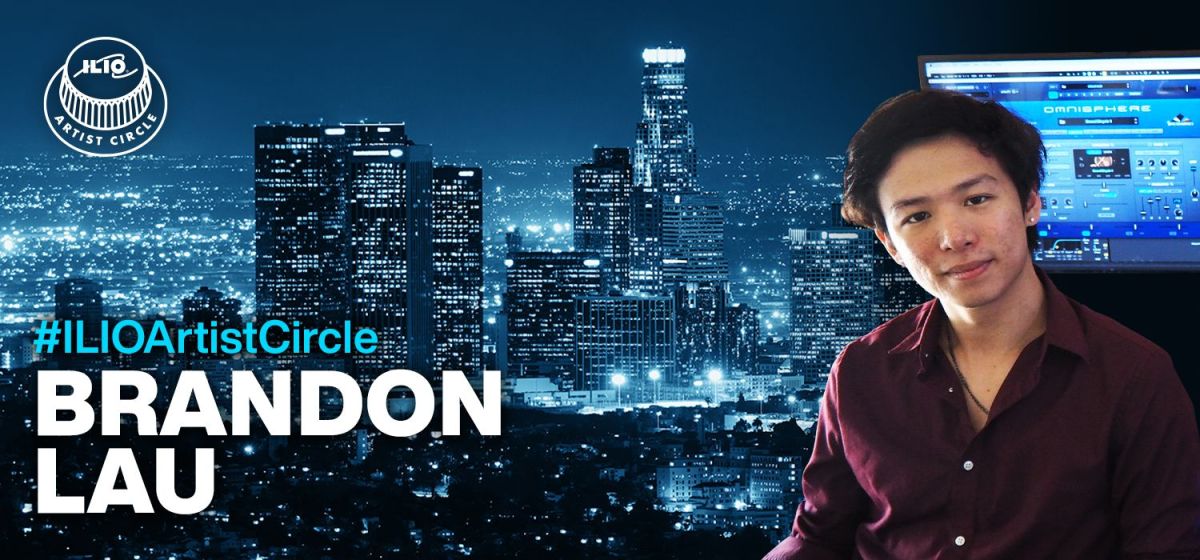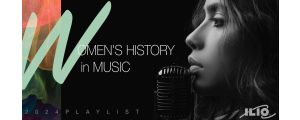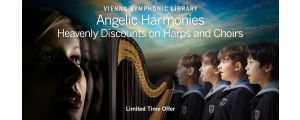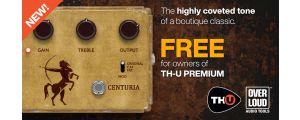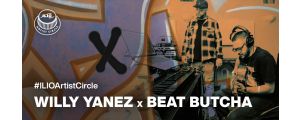When you think of music for movies, the first references are the big, dramatic scores written by well-known top-tier film composers. But there is another area of music writing that is likely heard more often and by more people: trailer music. While rarely credited, the trailer composer plays an important role in the marketing for a movie, helping to set the tone and style for the upcoming release. Brandon Lau is a rising name in this highly competitive field, bringing a fresh, youthful style influenced as much by EDM and hip-hop as by classical music and legacy film scores. Equally skilled at sound design as composing, Lau represents the next-gen approach to this important niche for the electronic composer.
A Good Start
Growing up, Lau studied piano, then added violin, sax, some guitar, drums, and eventually DJing to his pursuits. Interestingly, he never seriously considered music his career path: “I applied to John Hopkins University to be a chemistry major, and they rejected me!” Based on his parent’s suggestion, he applied and was accepted into the film-scoring program at Berklee College Of Music: “I didn’t even know that people did that for a living,” he related. While in the program, he had an epiphany: “Writing music for orchestra is a huge part of the curriculum, and while I learned a ton about it and I’m able to do it, I didn’t really enjoy it <laughs>,” he shares. “It wasn’t fun for me as compared to writing for electronic instruments and sounds.”
Brandon’s tastes in music run from an early love for the popular music on the radio growing up, artists like Beyonce and Jay-Z and Linkin Park, to DJ-produced hits like “Titanium” and “Clarity,” to the new breed of film composers who were fusing acoustic instruments, the orchestra, and electronics. He came of age in the electronic music revolution and feels that set the stage for his style: “Developing that sound as my interest, and then fusing it with my interest in film scoring led me to non-traditional sound palettes for scoring media,” he explains.
“I didn’t even know that people did that for a living.”
Building a Portfolio
Recognizing that Boston was not the place to try to kick-start a career in film music, Lau decided to visit Los Angeles and get a sense for the area. “In the summer between my junior and senior years, I tried to find some sort of an internship or working opportunity there. I applied to a bunch of places but didn't hear anything back,” he related. “So I went anyway, and then a few places reached out. One of them was a trailer music library called redCola, based in Venice. I worked there for three months, doing whatever they needed: meta-tagging, logistical tasks, things like that. During our downtime, the owner of the company would teach me how to write trailer music. The experience of working in a trailer music library firm taught me a lot about the back-end of what happens in a library, as a composer, what are the do’s and don’ts of how to submit your music, and what library publishers are really looking for.”
Armed with that knowledge and newfound experience, he returned for his last year at Berklee, and another epiphany. “I realized that I needed to start shifting my focus away from school to make my graduation to workforce transition smoother,” he confessed. “So in that last year, I spent minimal effort on assignments and put all my energy into trying to write a bunch of trailer music: to practice as hard as I could at my craft. So I did that, and by the time I graduated, I had almost 20 tracks composed.”
First Successes
“My very first placement was a small trailer for a BBC show. It was a 1-minute track that I wrote for one of my later publishers, and when I saw the final thing, it felt great. The placement that really made me feel like I was starting to go somewhere was for the video game Destiny 2. A lot of trailers may use multiple tracks per trailer, and most times, they’re not from the same composer. But the Destiny 2 trailer used two of my tracks, so I take up the entire trailer.”
“As an example of the impact it made on my career, if you put a track on Spotify and it gets less than a thousand plays, the plays are hidden. So my entire portfolio was completely dark! But overnight I gained something like 15,000 listeners; it was completely crazy. Absolutely the pivotal placement in my career.”
Since then, his career has expanded nicely. “I just picked up my first theatrical placement with Ambulance, along with trailers for Scream and Arcane. A piece of music I wrote pitching for Dune didn’t get used, but I later found out it was placed in the trailer for Croods 2. I just found out earlier this week that I got an Xbox placement. So both in frequency and status, my opportunities have been increasing.”
Lessons Learned
When asked what he has learned about trailer music, he shared some observations. "When we think about electronic sounds that support the score, they aren’t necessarily emulating anything that exists in real life, so I can do whatever I want as long as it supports what’s happening in the picture. That’s the most important thing." Getting into composition structure he explains, “Form is very, very important. To have that kind of trajectory for a 2:30 piece that gradually grows over time, with different areas of starting and stopping to aid in editing. Another big skill that I learned about was mixing and production. You know how most trailers sound so packed and huge? There are a lot of production tricks that go into that, and the years that I spent working under and with publishers taught me a lot.”
“When we think about electronic sounds that support the score, they aren’t necessarily emulating anything that exists in real life, so I can do whatever I want as long as it supports what’s happening in the picture. That’s the most important thing.”
His Workshop
Asked to describe his studio tools and workflow, Brandon shared, “Most of my tracks are all virtual, although I do have an analog synth that I use to get a thicker sound. I also have a small recorder to capture audio with. This comes back to something I heard from a composer … even if you have to force it a bit, you always want a little bit of audio in your track to implement an element of realism — to get away from just programming everything. That’s a philosophy I try to retain in my composing.”
One soft-synth that is getting a lot of use in his most recent work is Spectrasonics' Omnisphere. "Omnisphere is such a huge player in scoring in general." Lau enthuses, “There are so many different ways to use it, for the samples, and for the pads… I’ve been using it a lot for my leads because I think every synth has its own unique sound. So for my lead element, be it a melody or the hook, or just the most up-front and memorable aspect of the track, I tend to use Omnisphere, maybe blended with other things to create this one mega-sound that would drive the track.” He adds, “I really like using the Waveshaper: it’s really good for creating those aggressive elements that are very present in trailer music.”
“Omnisphere is such a huge player in scoring in general.”
“My other favorite thing [in Omnisphere] is the Inner Space FX, which seems to act like a convolution element. As a sound designer, it’s such a quick way to get some inspiration and unique ideas to drastically shape your sound.”
Asked how he chooses his sounds, Brandon enthuses, “I’m really glad that you mentioned that because when there are too many choices, I often feel paralyzed by indecision. So I will mostly start and build the sound myself. That way it’s very purposeful, and I don’t have to study a preset to find out which modulator is causing the effect that I don’t want. That takes up too much time for me when I’m in the flow of making music.”
“When there are too many choices, I often feel paralyzed by indecision.”
Future Goals
Asked where he wants to head next, Lau shared, “My goal for this year is to have one involvement (be it trailer, sound design, or additional music) in the Marvel Cinematic Universe! I am also trying to make that move into narrative composing, film scoring, TV, and video games. Writing for libraries, I can write whatever I want, but it feels almost a little too free. Having the back and forth of talking to a director or developer about their vision of what they want the music to do, and then purposely and intentionally writing your music to be attached to that one thing; that is something that I’m missing in my experience.”
For more about Brandon Lau, visit his website here.
Find his music on Spotify here.
Instagram: @brandonlaumusic

